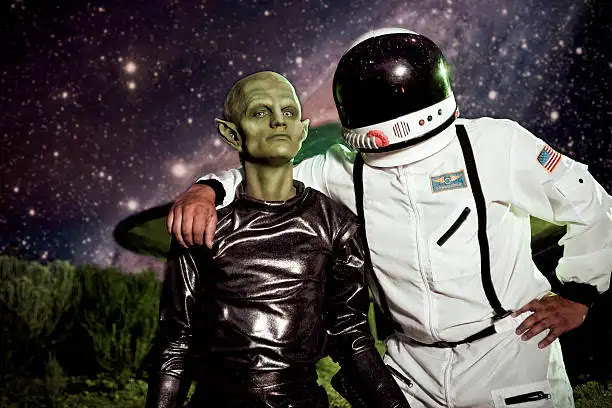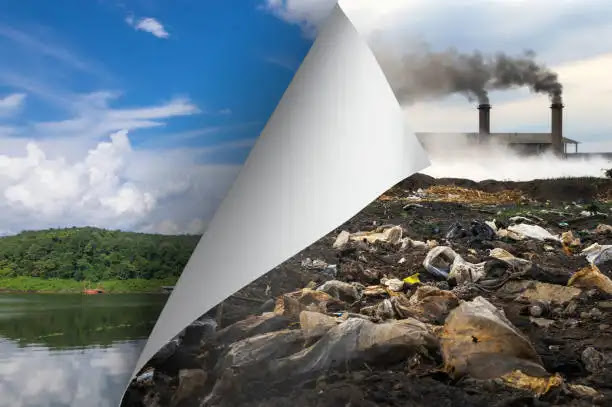According to renowned astronomer Avi Loeb, it is likely that our universe was created in a laboratory by a class of aliens that are capable of producing universes.
Extraterrestrials Created Our Cosmos
Neither a virtual world nor a second reality exists. The extraterrestrial gods, who are superior beings in the final stages of evolution, created our cosmos as an experiment in their lab. It "unifies the religious notion of creation with the secular notion of quantum gravity," according to a new scientific theory.
That final statement is credited to Avi Loeb, the influential, occasionally contentious, and consistently fascinating author of this novel theory of the cosmos. This theoretical physicist is arguably most known for his idea concerning the origin of Oumuamua, the first interstellar object detected in our solar system, rather than for his role as chairman of the North American National Academies' physics and astronomy committee. Loeb has an intriguing idea and expresses it for Scientific American.
Gods from other planets
No, Loeb does not suggest that the universe has a divine or religious foundation. The Israeli-born physicist makes the following suggestion after reviewing various theories that make an effort to explain some of the still unresolved anomalies and characteristics of our universe: "the least explored possibility that our universe was created in the laboratory of a technologically advanced civilization."
Because of the flat geometry and absence of net energy in our universe, Loeb writes in his article, "an intelligent civilisation may have developed the requisite technology to build a baby universe from scratch using quantum tunneling."
We still lack a predictive theory that unifies the two essential tenets of modern physics, quantum mechanics and the general theory of relativity, according to the researcher, who also serves as an advisor to the Breakthrough Starshot interstellar exploration project. He notes that a civilization that was more sophisticated than ours might have discovered this key and used it to get the capability and technology to construct new universes.
The theory, however, goes considerably farther. This strategy, in Loeb's opinion, would prove that the universe is comparable to "a biological system that would retain the durability of its genetic material through several generations" in addition to explaining how this flat world came into existence from a higher dimension. According to Loeb's theory, some of these laboratory universes would develop and give rise to new civilizations that could create other universes.
A new civilizational scale
In his theoretical exercise, Loeb considers how the scale of civilizations developed in the middle of the 1960s by Nikolai Kardashev differs from our own. The scale developed by the Soviet scientist assesses a civilization's level of expertise in relation to its use of energy and, as a result, its ability to travel to other stars. Like humans, type 1 civilizations are limited to using the energy of their planet. A type 2—referred to as a stellar—can use systems like the Dyson Spheres, a giant structure that encircles a sun, to harness the full potential of its star. A type 3 civilization can manage the energy in its entire galaxy and is a galactic civilization.
The crucial point, according to Loeb, is to look at a civilization's capacity "to repeat the astrophysical conditions that have led to its birth," rather than at its capacity to harness the energy of the universe.
On both the Kardashev and the new Loeb scales, which place us in class C since we are not even capable of replicating the conditions that would make our planet habitable, humans are still in their infancy. If we don't change before our star dies, we will perish with it.
A class B civilization, however, is independent of its star and could turn any planet into an ideal planet for life. And finally, a class A civilization could recreate the conditions that created its own physical existence. From there, he affirms, would come the ability to create laboratory universes.
The final twist
And it is here that we return to the category of the gods and the biggest difference with the Kardashev scale. As Loeb explains, the ability to reach the rank of Class A would be extremely difficult. Creating a universe requires the ability to manipulate energy and dark matter.
Loeb argument then he understands that the likelihood of more than one class A civilization occurring is extremely slim: "since a self-replicating universe only needs one class A civilization, and having many more is much less likely, the most common universe would be the one that spawns almost no A-class civilizations," he writes. Loeb claims that Darwinian selection principles govern the evolution of all of these experimental universes.
The great degradation
Finally, the physicist gets on the bandwagon of the great degradations that Carl Sagan pointed out in his book The Pale Blue Dot. During the last centuries the human being has discovered that we are not the center of creation. That the Earth is not in the center of the solar system. That the sun is not at the center of the galaxy and our galaxy is not unique nor is it at the center of the universe. We are nothing more than an infinitesimal parenthesis lost in a great cosmos of unimaginable dimensions.
Like numerous theoretical physicists before him, Loeb asserts that there are other cosmos besides this enormous one. The final straw, he claims, is what he tells his Harvard University astrophysics students: "Half of you are objectively below the class average" (something he says makes them very angry, of course, because they all we think we are clever). According to the scientist, mankind is similarly situated at the core of a Gaussian bell "even if we have discovered the Higgs boson." In fact, he claims that given the destructive nature of our species, we are unlikely to reach class C and will likely remain in class D. Basically, class fools.
Mahatma Gandhi







0 Comments